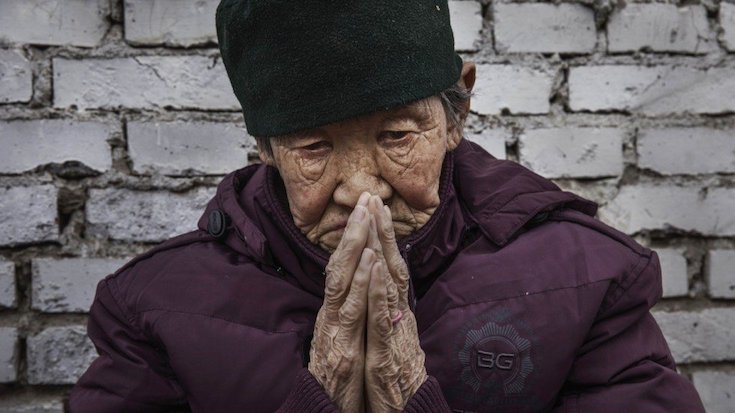During the in-flight press conference as he was retuning from the Baltic countries, Pope Francis recalled how kings and emperors once controlled bishops’ appointments. He expressed relief that these regrettable situations have ended: “We forget that for 350 years it was the king of Portugal and of Spain to appoint the bishops and the Pope only gave jurisdiction. We forget the case of the Austro-Hungarian Empire. . . .thanks to God that they aren’t repeated.”
But the question now arises: Is this still the case in Communist China? How will the pontiff appoint bishops? Does the provisional agreement really allow him final say? A case in point: it seems the Communist Chinese government chose to send two bishops to the Synod on Youth – and the Vatican was forced to accept them.
It’s true historically that procedures for appointing bishops were never uniform in all of Christendom. Instead, there was a multiplicity of forms that depended on the historical circumstances of particular countries. The appointment process evolved, however, from being the prerogative of civil authorities to ecclesiastical authorities; until it became the sole decision of the pope.
Who has the right to appoint bishops? The Apostles were the first to appoint bishops, and from the apostolic Church up to 4thcentury the community of the early Church and the early Christians elected their shepherds. Hippolytus writes: “Let the bishop be ordained after he has been chosen by all the people. . . .While all give their consent, the bishops shall lay hands upon him.” (Epistle67)
In the Christian East, the election of the bishop happened in the presence of the metropolitan who served as a judge, checking the qualities and especially the orthodoxy of the elected candidate and those who lay hands upon him.
In the Christian West, the tradition was slightly different: the bishop was often elected with full participation of local clergy and people under the leadership of the ecclesiastical superior.
In the 6thcentury, the Merovingian kings intervened in ecclesiastical elections. The investiture controversy led to restrictions of the electoral body to the canons of the cathedral chapter. The Second Lateran Council (1139) decreed that the right of election of a bishop was to be restricted to the canons of the cathedral chapter, and other clergy of the diocese have a consultative voice.
The Council of Trent (1545-63) discussed the selections of bishops and provided some norms for the qualifications required in case the appointment came directly from the pope. These procedures proved to be highly inefficient and the appointment of the bishops by the pope became normative afterwards.
The kings of France, Spain, and Portugal, however, continued to appoint bishops while the pope reserved for himself the institutio canonica, or what is known as the right of confirmation, which conferred episcopal jurisdiction on the bishops. These sovereigns were considered unjust usurpers of the right to appoint bishops, which belonged exclusively to the Roman Pontiff.

During the entire history of the Church, however, there has been a strong awareness that the appointment of the bishops was an ecclesiastical matter, reserved to the competence of ecclesiastical authorities and not to sovereigns. This principle underscored the importance of the Church’s freedom and the autonomy from the sovereign and the state.
What followed were many concordats or conventions between the Holy See and various sovereigns. The head of state could designate bishops for the vacant dioceses, but the pope conferred the Institutio canonica. If he satisfied all the qualifications required by Canon Law and was able to fulfil episcopal functions, the candidate designated by the civil authorities could not be refused. In other words, the state was in the driver’s seat, while the pope’s approval was secondary.
This situation changed dramatically at the Second Vatican Council, which called upon civil authorities to renounce previous agreements or concordats with the Holy See and relinquish the rights to select, nominate, or appoint bishops. The Council affirmed the exclusivity and competence of one sole authority to appoint bishops, the Roman Pontiff: “Since the apostolic office of bishops was instituted by Christ the Lord and pursues a spiritual and supernatural purpose, this sacred ecumenical synod declares that the right of nominating and appointing bishops belongs properly, peculiarly, and per se exclusively to the competent ecclesiastical authority. (Christus Dominus)
The text continues:
Therefore, for the purpose of duly protecting the freedom of the Church and of promoting more conveniently and efficiently the welfare of the faithful, this holy council desires that in future no more rights or privileges of election, nomination, presentation, or designation for the office of bishop be granted to civil authorities. The civil authorities, on the other hand, whose favorable attitude toward the Church the sacred synod gratefully acknowledges and highly appreciates, are most kindly requested voluntarily to renounce the above-mentioned rights and privileges which they presently enjoy by reason of a treaty or custom, after discussing the matter with the Apostolic See.
Moreover, the 1983 Code states: “In the future, no rights and privileges of election, nomination, presentation, or designation of bishops are granted to civil authorities.” (Canon 377)
So, returning to the Sino-Vatican provisional agreement and Holy Father’s speech: Is the Holy Father going against the teaching of Vatican II and going back fifty years? This explains why he said that Sino-Vatican relations are taking “two steps and back one, two ahead and back one.”
The step back is back fifty years, and it might have devastating consequences for the Catholic Church of China. In 1906 Vladimir Lenin published One Step Forward, Two Steps Back – Crisis in Our Party. Lenin was less optimistic in taking steps to remedy the split in his party. Should we say “two steps back and one forward” is symptomatic of a deep crisis in Sino-Vatican relations?















